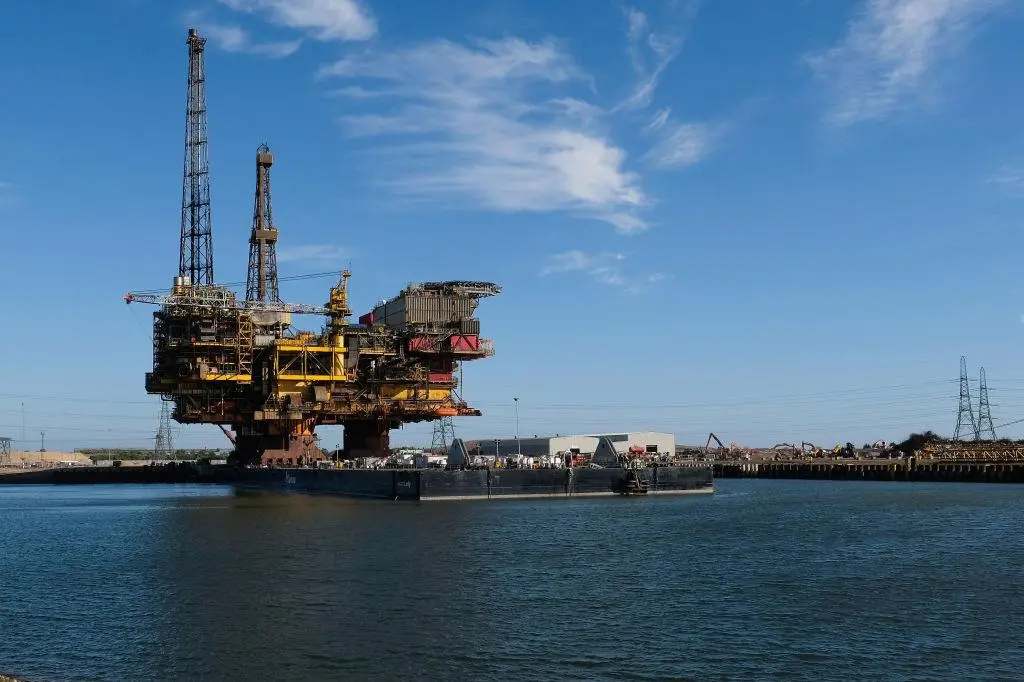PHOTO
- Front-month Brent crude futures were at $70.14
- Asian shares edge higher on Tuesday
- Qatar’s index gains 0.9 percent, boosted by banks
- Dollar rises, gold drops
Oil prices
Oil prices edged higher early on Tuesday, with Brent reaching the $70 level.
Prices have been supported by supply cuts led by the Organization of the Petroleum Exporting Countries (OPEC) since the start of the year. United States sanctions on Iran and Venezuela have also boosted prices.
Front-month Brent crude futures, the international benchmark for oil prices, were at $70.14 at 0218 GMT, 3 cents above the last session’s close, when Brent rose 2.1%.
U.S. West Texas Intermediate (WTI) crude futures were at $59.21 per barrel, up 58 cents or 1% from their last close on Friday. WTI did not trade on Monday due to a public holiday in the United States.
“Supply-side issues returned to the fore, with crude oil prices rising strongly,” ANZ bank said on Tuesday, according to a Reuters report.
“Iran exports remain under pressure as U.S. sanctions bite. This comes as OPEC appears to be heading towards extending the current production cut agreement,” it added.
Global markets
Asian shares edged higher on Tuesday.
MSCI’s broadest index of Asia-Pacific shares outside Japan was up 0.07% in early trade.
Those small gains followed a relatively light session in Europe on Monday, with financial markets in the U.K. and U.S. closed for holidays. The pan-European STOXX 600 added 0.22%.
According to a Reuters report, provisional results from EU elections also buoyed markets after pro-union parties kept a firm grip on power in elections to the European Parliament.
“Although Eurosceptic and anti-establishment parties didn’t win as many seats as expected, their influence has increased significantly. This could have implications for the political color of key EU positions,” Rodrigo Catril, senior FX strategist at National Australia Bank, told Reuters.
“The Parliament composition is also likely to have implications on the priority agenda for future EU reform, particularly with respect to things like immigration, fiscal spending and fiscal union,” he added, noting a decrease in bond yields pointed to continued risk aversion.
Middle East markets
Saudi Arabia’s index edged 0.3 percent higher on Monday with Saudi Basic Industries gaining 1.1% and Saudi British Bank closing 3.4% higher.
MSCI said earlier this month that it would include MSCI Saudi Arabia in its emerging markets index, effective May 28.
Dubai's index fell 0.3%. Emaar Properties shed 0.5% and its unit Emaar Malls was down 1.1%.
The Abu Dhabi index edged up 0.1%, lifted by a 2.7% gain in energy firm Dana Gas.
Qatar's index added 0.9%, as Qatar Islamic Bank surged 8.7% and the Middle East's biggest lender, Qatar National Bank, added 2.2%.
Egypt's blue-chip index slid 0.2%, with Juhayna Food slumping 8.6% and Eastern Company down 2.4%.
Kuwait’s premier market index added 0.8 percent, Bahrain’s index edged gained 0.2 percent and Oman’s index edged 0.2 percent lower.
Currencies
The dollar rose early on Tuesday.
The dollar index, which measures the greenback against a basket of six major currencies, gained 0.2% to 97.804.
Precious metals
Gold prices dropped on a stronger dollar.
Spot gold was down 0.1% at $1,283.29 per ounce, as of 0338 GMT, after touching its highest since May 17 at $1,287.32.
U.S. gold futures were down 0.1% at $1,282.30 an ounce.
(Reporting by Gerard Aoun; Editing by Mily Chakrabarty)
Our Standards: The Thomson Reuters Trust Principles
Disclaimer: This article is provided for informational purposes only. The content does not provide tax, legal or investment advice or opinion regarding the suitability, value or profitability of any particular security, portfolio or investment strategy. Read our full disclaimer policy here.
© ZAWYA 2019




















